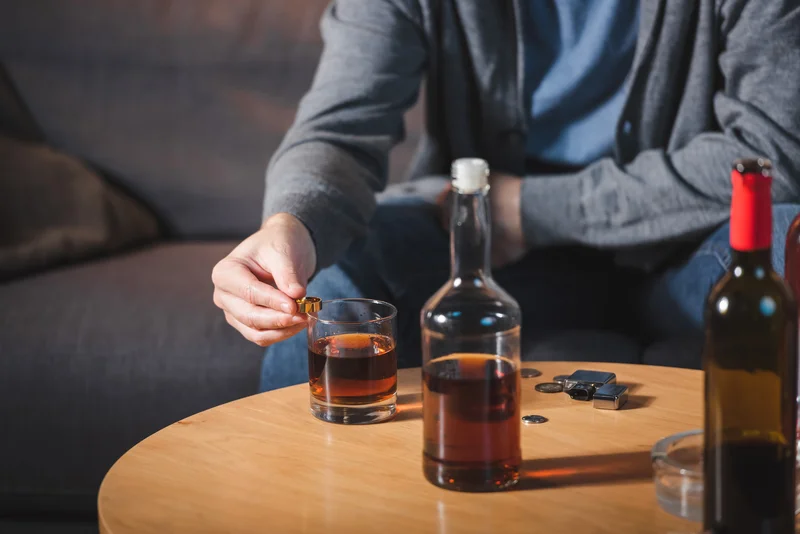
It’s not about conforming to outdated stereotypes of “alcoholism” but recognising that problematic drinking exists along a broad spectrum. Anyone who experiences negative consequences due to alcohol use deserves support and the opportunity to make positive changes. Seeking treatment for both at the same time is encouraged, since they tend to feed off each other. Unfortunately, both alcohol usage disorders and alcohol withdrawal can intensify the symptoms of PTSD, so support during the detox process will be essential to increase the effectiveness of any treatment. Blacking out is a period of alcohol-induced amnesia during https://ecosoberhouse.com/article/alcohol-detox-side-effects-what-bad-can-happen/ which a person actively engages in behaviors like walking or talking but doesn’t remember doing so. Alcohol-induced blackouts are defined as amnesia, or memory loss, for all or part of a drinking episode.

How does alcohol affect PTSD symptoms?
When you use alcohol to deal with PTSD symptoms, you may feel better in the moment, but those feelings always return—often more severely. Prolonged blackout drinking can also cause serious problems throughout your life, which may worsen your mental health and make you even more reliant on alcohol. The term alcohol usage disorder covers a broad spectrum that affects individuals differently, and many don’t fit the conventional stereotype.

Proactive Measures to Prevent PTSD Blackouts
- Early intervention can prevent alcohol use from spiraling out of control, and offer healthier ways to cope with trauma.
- Her purpose is to help individuals understand their past so they can create a future full of hope, growth, and success.
- However, both PTSD and alcohol use disorders are not strictly reserved for veterans.
- PTSD can last for as little as a few months or a lot longer, depending on how quickly you get treatment.
Kirsty Mulcahy is a compassionate transformational life coach with a special focus on helping individuals embrace the beauty of an alcohol-free existence. Kirsty is not just a coach; she’s the visionary founder and dedicated Managing Director of SoberBuzz Scotland CIC. Consider making weekend mornings a dedicated period for activities that help you unwind and relax. Look for wellness activity groups that align with your interests, whether it’s walking, meditation, yoga, or even adventurous experiences like wild swimming.

PTSD Movies on Netflix: Top Mental Health Films to Watch
By understanding and treating memory loss, individuals can take significant steps towards reclaiming their sense of self and rebuilding their lives. While personal coping skills can greatly help prevent and deal with blackouts, professional help is often necessary for truly effective management. This could involve psychotherapies such as Cognitive Behavioral Therapy (CBT), Eye Movement Desensitization and Reprocessing (EMDR), or medication in some cases. By following these guidelines and understanding the influencing factors, individuals can reduce the likelihood of experiencing drug addiction treatment dangerous and memory-altering blackouts. The two types of blackouts—fragmentary and en bloc—reflect the different degrees of memory loss.

The Science Behind Trauma-Induced Memory Loss
Substances include alcohol, illegal drugs, and prescription and over-the-counter medicines. The combination of alcoholism and PTSD is significantly more likely to lead to low income, unemployment, and impaired social functioning than when these disorders are apart. Nevertheless, there are ways to manage alcoholism and prevent ptsd alcohol blackout. Combat ptsd alcohol blackout exposure is a common source of trauma, and these wounds may not heal on their own. The VA estimates that 11-20% of the veterans deployed to Iraq or Afghanistan may have PTSD. These individuals are at higher risk to engage in unhealthy behaviors like blackout drinking, particularly if they are not receiving mental health support.
